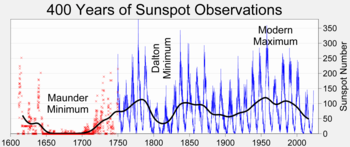If genuine care, sincerity and concern for nature and protecting people was put into two words, they might be "David Suzuki". . Even if he is being paid for it, his lifelong commitment is impressive.
Here is his latest take on pesticides: The ugly truth about cosmetic pesticides
A real estate agent once visited me at home and offered to sell my house. I was tempted for about a nanosecond before turning him down cold.
The house where I've lived for decades in Vancouver is not just a property to me. My home - especially the backyard - means so much more.
The backyard isn't just my own private place of refuge in the summer. It's a sacred place for my family as well.
It's where my kids played tag as children and where they now socialize with their friends as adults. It's where my wife and I hold family barbecues and dinners in the summer. And it's where my father-in-law gets down on his hands and knees to pull weeds and tend to the St. John's Wort and tulips. Our pet dog, Huckleberry, was even buried in the backyard when he died.
I wouldn't trade any of my memories that have taken place on that small stretch of grass for anything in the world. I know I'm not alone in my passion. Our yards and gardens are a symbolic zone, a private sanctuary. Our public parks are also treasured spaces: they're the public commons where we can throw Frisbees, play volleyball, read a book, or (my favorite) take a nap.
There's been a tremendous amount of interest in green spaces recently. And with good reason. Many of the private yards and public parks that we enjoy are coated with toxic chemical pesticides to kill weeds. The problem is that they work too well, and exposure to them can damage our health.
In 2003, the Ontario College of Family Physicians published a scientific literature review that showed "consistent links to serious illnesses, such as cancer, reproductive problems and neurological diseases" associated with chronic pesticide exposure.
It stands to reason that children and pets are often more exposed since they're the ones most likely to be found rolling playing on the grass during the summer months. Children are also more vulnerable to the health effects of pesticide exposure because their young bodies are still developing.
So what exactly are we spraying on our lawns? At least 50 active pesticide ingredients registered for use in Canada have been banned in other countries due to health or environmental concerns. One popular lawn herbicide called "2,4-D", can easily be found in products lining the garden care section of your local hardware store. But don't look for it in Denmark, Norway or Sweden. The herbicide, 2,4-D, is no longer sold in Scandinavia because of health and environmental concerns.
Another report, published by my foundation, showed that more than 6,000 cases of acute pesticide poisoning occur in Canada [L1] each year. Even more frightening, half of those poisonings involve children under six.
Despite the clear evidence against chemical pesticides, more than 30 per cent of Canadians with gardens still use them. But there is evidence that this practice may be coming to an end. Many cities have passed bylaws banning the use of these lawn and garden pesticides. We can look forward to the day when a neighbor applying these chemicals to their yards will seem as out-of-place as a smoker lighting up a cigarette on a transatlantic flight.
That day may be just around the corner - at least in some parts of Canada. In 2003, Quebec banned the use and sale of many lawn pesticides. Now the Ontario government is proposing similar legislation. The Government of PEI also recently held hearings on a potential province-wide ban. Provincial action is important, because while cities and towns can restrict the use of these chemicals on public and private property, provincial governments have the power to ban the sale of cosmetic pesticides. Pulling the prohibited products from store shelves is the best way to make sure they aren't used.
I hope that residents across Canada - especially in Ontario and PEI - make their voices heard on this issue.
Remembering the great times I've had in my backyard, like watching my kids play, chatting with my father-in-law while he tends the garden, and having friends over for a summer dinner are incredible experiences. I'm sure most Canadians have similar memories that have taken place in their own backyards. We should be able to enjoy these green sanctuaries without worrying about chemicals. And so should our children.
From David Suzuki at cnews





 Image courtesy of NASA It turns out our Chinese imports aren't limited to just cheaper goods -
Image courtesy of NASA It turns out our Chinese imports aren't limited to just cheaper goods - 
![Amazon:ISBN-0198506988 [ISBN-0198506988]](http://ec2.images-amazon.com/images/P/0198506988.01._AA240_SCLZZZZZZZ_V37451287_.jpg)

